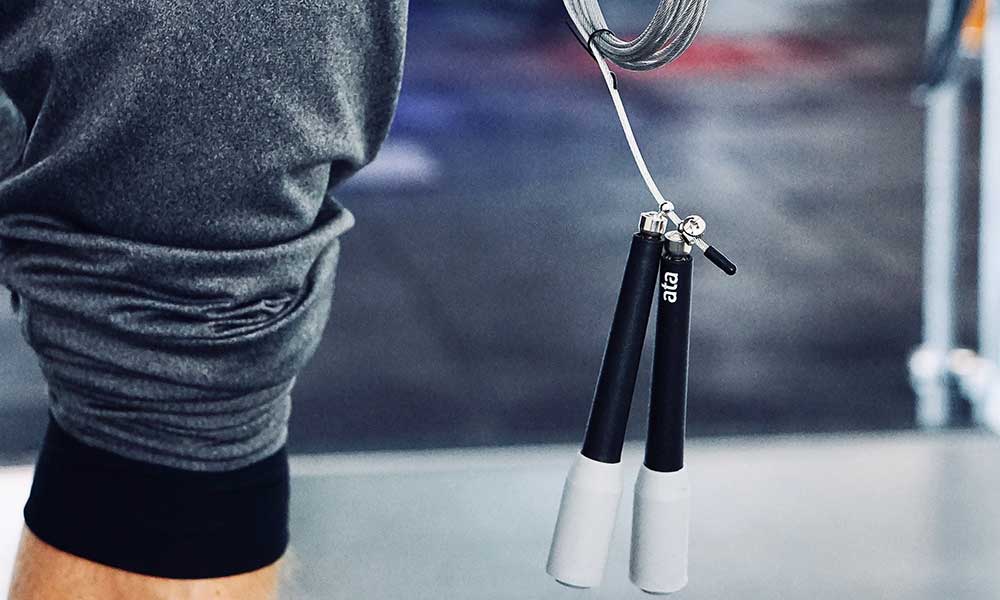For whatever reason you stopped running, we want to help you get back on track, both literally and figuratively. Running is a great way to get in shape, maintain physical health, reset your mental health after a rough day, or put you in a good frame of mind to start your day.
There are many reasons that people stop running and based on those reasons, you may need to take a different approach to get started again. Here are the most common reasons that people stop running:
- Injury
- Illness
- Motivation
- Life changes
For any of these reasons, maybe you’ve stopped running for some time which means your running fitness may not be in the same place as it was when you were running consistently.
So how do you get back into running again?
For the first few weeks, plan to run four times a week or every other day. Keep these runs short, in the 5-10 minute range and don’t be afraid to jog/walk if it’s more comfortable.
The goal here is to get the running habit and rhythm back, stay consistent, and begin to activate the running muscles that have been unused for some time.
On the days in between each run or even on the running days, plan to do some light strength training, stretching, or other physical activity. You may even be able to swim, cycle, or play other sports on those days if you were doing that in your time away from running.
Running after recovering from illness or injury
If you’re coming back from illness or injury, we first recommend talking to your health care professional or physical therapist to lay out a plan for your return to running, especially if running was the cause in the first place. The worst scenario is trying to come back too soon and doing even more damage.
It may take some time to build confidence again as you run. Take it slow, give your body time to adjust. It’s important that running does not prevent your full recovery, rather it helps you to come back stronger and healthier and avoid injury in the future.
You may need to assess your running goals if your illness or injury was more severe and had permanent effects. The goals you had prior will need to be adjusted.
Motivation
Maybe you just finished running a marathon and didn’t know what to do next and the motivation was gone or you simply got tired of running and lost your stride. The reasons for losing motivation are many, so it can be helpful to approach your return to running a bit differently as this tends to be more psychological rather than physical.
Honest self-assessment
Take a look at why you stopped running in the first place and why you want to start again. If you haven’t made adjustments since you stopped, it’s possible that the reason you stopped will happen again.
For example, it’s really easy to skip a day because you just aren’t feeling it. But oftentimes, one day leads to two and so on, then you’re out of the running habit and it’s hard to get started again. It may be a good idea to join a running group or find a running coach or personal trainer to help you with accountability and building a training schedule.
All of this to say, take a look at the why and see if there are any adjustments you can make, and don’t be afraid to ask for help.
Setting goals
A lot of people stop running when they achieve their goal and don’t have something else to look forward to. Pick goals and benchmarks for your running to keep you motivated and working toward something.
For example, book a half-marathon that is three months away and a marathon that is 6 months out. This way, the first race becomes a training benchmark that will help you reach the next race.
Learn to enjoy the process
Some runners eventually reach all of their training goals, run all the marathons they can, or even finish an Iron Man then essentially realize that they are just tired of running and pushing so hard that they take a break.
If you are this type of returning runner, you may want to revisit why you started running in the first place. Try to reconnect to the joy you originally found in running—if that’s why you started—and don’t worry about setting records or competing in races.
Running can become a life rhythm where you get to be with your thoughts, be in nature, chat with your friends, or enjoy your favorite music. Rather than being a competition with yourself or others, it’s a renewing and cathartic experience.
Life Changes
We live in a busy and constantly changing world. Maybe you’ve moved locations and don’t know any routes or switched jobs or had a child and now you don’t have the same time you did before.
New location
You live in a new city and are unfamiliar with the routes. On top of this, maybe the move was stressful and took a lot of energy and now you don’t know how to get back in.
Find a running group
Running groups are a great way to meet people in your new city and to get a feel for the local trails.
Start exploring
If you don’t know any routes, just start running out of your front door and doing loops around the different streets in your neighborhood, finding your way home. You may discover trailheads, parks, and other spots that you love. Just be adventurous (as long as it is safe) and use running to discover new things about your new location.
Tracking websites or apps
Exercise tracking websites and apps often have features to explore the routes that others around you are running so you can discover what’s in your area.
Time constraints
If your life change has presented you with less time or different times to run, you will likely have to get creative in order to set up a new running schedule.
New family member
If you’ve just added a new child to your family and don’t have the same amount of time to run, maybe you can include the child in your running habit by getting a jogging stroller. Certainly, it won’t be the same type of run you used to do, but it can be just as enjoyable, if not more.
New job
You always want to make your best impression at a new job and if it has different hours or expectations, you may not be able to run at the same times as you used to.
This may involve you learning to run in the evening after work, even joining a gym with a track so you can run at night in a safe and well-lit environment. Or maybe you will need to get up an hour earlier than you used to or squeeze in a run during your lunch break.
With a little bit of creativity and willingness to adjust to a ‘new normal’ you should be able to get back to a rewarding and energizing rhythm.
Closing thoughts
For whatever reason you stopped, you’re reading this article which means you’re thinking about getting started again.
While it may involve adjusting expectations or lifestyle, you can do it. Just be patient with yourself and your body and remember, you’re not alone and it’s ok to ask for help.







